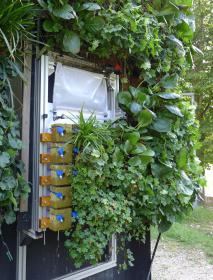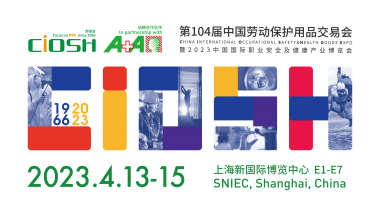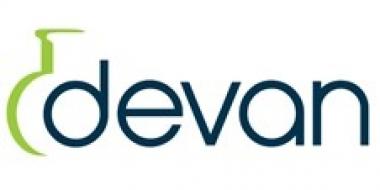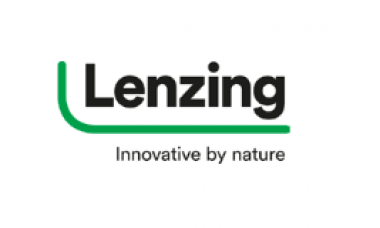DITF: Textile structures regulate water flow of rain-retaining "Living Wall"
Climate change is causing temperatures to rise and storms to increase. Especially in inner cities, summers are becoming a burden for people. While densification makes use of existing infrastructure and avoids urban sprawl, it increases the amount of sealed surfaces. This has a negative impact on the environment and climate. Green facades bring more green into cities. If textile storage structures are used, they can even actively contribute to flood protection. The German Institutes of Textile and Fiber Research (DITF) have developed a corresponding "Living Wall".
The plants on the green facades are supplied with water and nutrients via an automatic irrigation system. The "Living Walls" operate largely autonomously. Sensory yarns detect the water and nutrient content. The effort for care and maintenance is low.
Innovative hydraulic textile structures regulate water flow. The rock wool plant substrate on which the plants grow has a large volume in a small space thanks to its structure. Depending on how heavy the precipitation is, the rainwater is stored in a textile structure and later used to irrigate the plants. In the event of heavy rainfall, the excess water is discharged into the sewage system with a time delay. In this way, the "Living Walls" developed at the DITF help to make efficient use of water as a resource in post-densified urban areas.
The research project also scientifically investigated the cooling performance of a green facade. Modern textile technology in the substrate promotes the "transpiration" of the plants. This creates evaporative cooling and lowers temperatures in the surrounding area.
The work of the Denkendorf research team also included a cost-benefit calculation and a life-cycle analysis. Based on the laboratory and outdoor studies, a "green value" was defined that can be used to evaluate and compare the effect of greening buildings as a whole.
DITF German Institutes of Textile and Fiber Research textile-based sensors technical yarns and fibers
DITF












